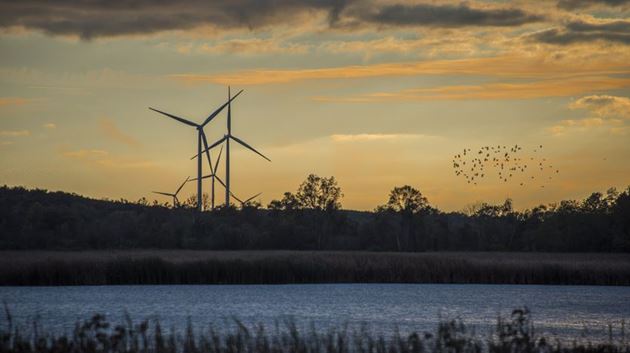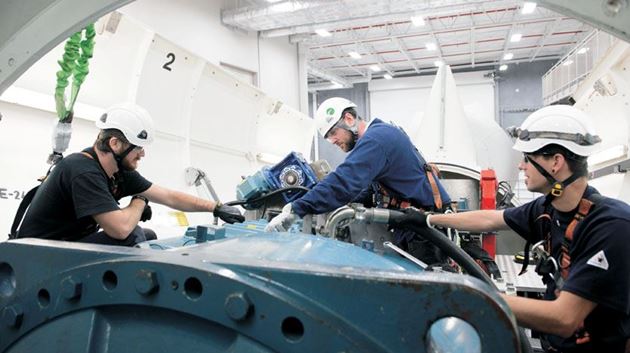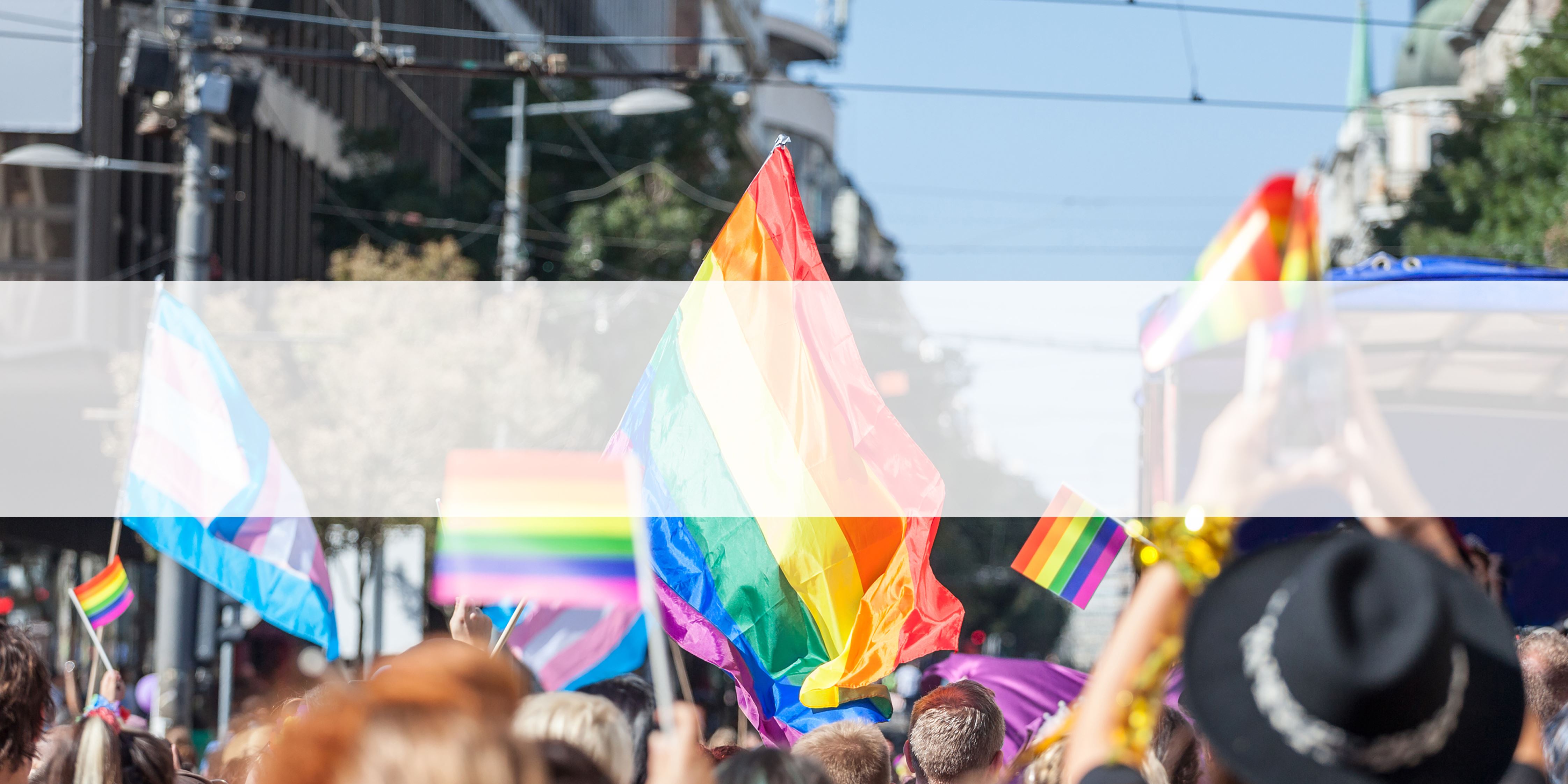
Voices of LGBTI: Hamzah Ziadeh and Katrin Kilders
#celebratingDiversity
Hamburg / 10 June 2021
26,000 individuals make up who we are at Siemens Gamesa. And it is for each of our 26,000 employees that we are committed to providing a diverse, inclusive and welcoming work environment. Creating equal opportunities for all is the only way that our employees can reach their full potential. We firmly believe that everyone deserves to feel they can be themselves and feel valued and accepted for who they are.
26,000 individuals make up who we are at Siemens Gamesa. And it is for each of our 26,000 employees that we are committed to providing a diverse, inclusive and welcoming work environment. Creating equal opportunities for all is the only way that our employees can reach their full potential. We firmly believe that everyone deserves to feel they can be themselves and feel valued and accepted for who they are.
Head of Sustainability Communication
June is Pride Month, a tribute to the participants of the 1970 Stonewall Uprising in New York City and a recognition of the impact that lesbian, gay, bisexual, transgender and intersex people have had on local, national and international history. By highlighting the personal journeys of some of our LGBTI colleagues, we aim not only to raise awareness about LGBTI issues, but also to give them a voice. We stand with them.
Today we introduce you to Hamzah Ziadeh (they/them), a student assistant in our Aalborg, Denmark office who identifies as bisexual and has recently begun to identify as non-binary. Also meet Katrin Kilders (she/her), a Project Document Manager working in our Offshore Execution Project Management in Siemens Gamesa’s office in Hamburg, Germany who is a gay/lesbian woman.
Today we introduce you to Hamzah Ziadeh (they/them), a student assistant in our Aalborg, Denmark office who identifies as bisexual and has recently begun to identify as non-binary. Also meet Katrin Kilders (she/her), a Project Document Manager working in our Offshore Execution Project Management in Siemens Gamesa’s office in Hamburg, Germany who is a gay/lesbian woman.
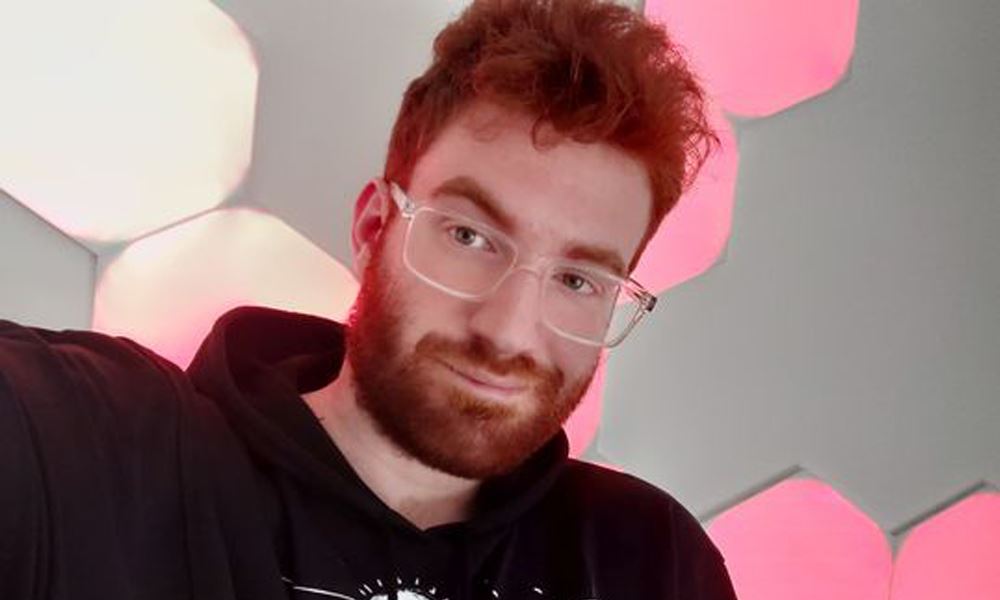
Hamzah Ziadeh (they/them)
"Both my sexual orientation and my lack of gender were thoughts in my head as far back as I can remember. In hindsight, it should have been obvious to me that I was LGBTI. I came to terms with my sexuality about five years ago during high school. At the time, I lived in a country that didn't accept LGBTI people, so I never felt comfortable enough to talk about it except with my closest friends, who I knew would accept me. I didn't start being openly bisexual until almost three years ago, when I started my education here in Denmark.
And even then, it wasn't until about two months ago that I came to terms with the fact that I don't identify with any gender and began exploring the realm of non-binary genders. This time, I live in a country that is more accepting of me, and I'm lucky enough to be able to tell people about it as I explore my gender identity.
I haven’t officially ’come out’ at my workplace yet. The reasons for that are very complicated and intertwined together. It never feels like there is a right time to inject my identity into a conversation and I am not sure how to broach the topic in this context. The biggest obstacle for me is that I am not sure what kind of support, if any, I am hoping to see in my workplace. In that sense, a great challenge to coming out is looking within and figuring out my gender, what it means, and what I expect from others. However, I do feel comfortable enough in my workplace to know that I will not have any worries when I go even further out of the closet.
Coming out in a professional context is a difficult task as many people in society do not take LGBTI seriously once they come out. Not being taken seriously in the workplace is a very damaging and destructive reality to live through which scares many LGBTI people today. Therefore, having more representation normalizes LGBTI people, creates a safe space for others to ask and learn, and comforts colleagues who are struggling with identity in the workplace as well. Having more out and proud colleagues working won’t only help LGBTI people be more comfortable but will also help others feel comfortable expressing themselves. The ability to be ourselves in the workplace as LGBTI people is simply giving us the same standard treatment as everyone else.
Companies should create employee resource groups or networks for their LGBTI communities, like we have at SGRE, so that our voices are heard and shared. Listening to and accepting others is a step that surprisingly few people are willing to take, but it empowers those who feel ridiculed and rejected because of their identity. A true ally listens to our needs and supports us on the path to being accepted and treated like everyone else. Talking about sexuality and gender is a difficult topic, especially for non-LGBTI people who don't have much to do with that side of the world. However, we are not afraid to talk about hard things when we talk about safety, feminism and sexism in the workplace, or other personal issues. I hope that in the future we will see more tasteful discussions about how to handle a transition, pronouns and equality so that we can bridge the gap and work to create a workplace where everyone feels comfortable with who they are and who is around them.
June is Pride Month, but for me to describe what Pride means is an impossible task. It has a different meaning for each LGBTI person, and the meaning is constantly changing depending on what stage that person is in. Right now, Pride shows me the stories of people like me who have struggled with their gender and figured it out. It shows me how to accept and deal with the difficulties of transitioning from one gender to another, and that it's okay if my gender doesn't fit into any of the molds - male or female. It means that I should live my life freely and that people will judge me on my character and abilities and not on how much I fit into a simple box that I don't belong in."
I haven’t officially ’come out’ at my workplace yet. The reasons for that are very complicated and intertwined together. It never feels like there is a right time to inject my identity into a conversation and I am not sure how to broach the topic in this context. The biggest obstacle for me is that I am not sure what kind of support, if any, I am hoping to see in my workplace. In that sense, a great challenge to coming out is looking within and figuring out my gender, what it means, and what I expect from others. However, I do feel comfortable enough in my workplace to know that I will not have any worries when I go even further out of the closet.
Coming out in a professional context is a difficult task as many people in society do not take LGBTI seriously once they come out. Not being taken seriously in the workplace is a very damaging and destructive reality to live through which scares many LGBTI people today. Therefore, having more representation normalizes LGBTI people, creates a safe space for others to ask and learn, and comforts colleagues who are struggling with identity in the workplace as well. Having more out and proud colleagues working won’t only help LGBTI people be more comfortable but will also help others feel comfortable expressing themselves. The ability to be ourselves in the workplace as LGBTI people is simply giving us the same standard treatment as everyone else.
Companies should create employee resource groups or networks for their LGBTI communities, like we have at SGRE, so that our voices are heard and shared. Listening to and accepting others is a step that surprisingly few people are willing to take, but it empowers those who feel ridiculed and rejected because of their identity. A true ally listens to our needs and supports us on the path to being accepted and treated like everyone else. Talking about sexuality and gender is a difficult topic, especially for non-LGBTI people who don't have much to do with that side of the world. However, we are not afraid to talk about hard things when we talk about safety, feminism and sexism in the workplace, or other personal issues. I hope that in the future we will see more tasteful discussions about how to handle a transition, pronouns and equality so that we can bridge the gap and work to create a workplace where everyone feels comfortable with who they are and who is around them.
June is Pride Month, but for me to describe what Pride means is an impossible task. It has a different meaning for each LGBTI person, and the meaning is constantly changing depending on what stage that person is in. Right now, Pride shows me the stories of people like me who have struggled with their gender and figured it out. It shows me how to accept and deal with the difficulties of transitioning from one gender to another, and that it's okay if my gender doesn't fit into any of the molds - male or female. It means that I should live my life freely and that people will judge me on my character and abilities and not on how much I fit into a simple box that I don't belong in."
Katrin Kilders (she/her)
“I first realized I liked girls when I was 18 years old. Friends from my soccer team took me to a party where I met a lot of LGBTI people. I had a lot of fun and felt very comfortable there and from then on, I went to these parties regularly. A few months later I met my first girlfriend and decided that I didn't want to hide my relationship. In women's soccer, where I spent most of my free time and where I also had most of my friends, homosexuality was dealt with openly. This openness made it easy for me to come out to my friends. I was also fortunate that my parents were very accepting when I came out to them.
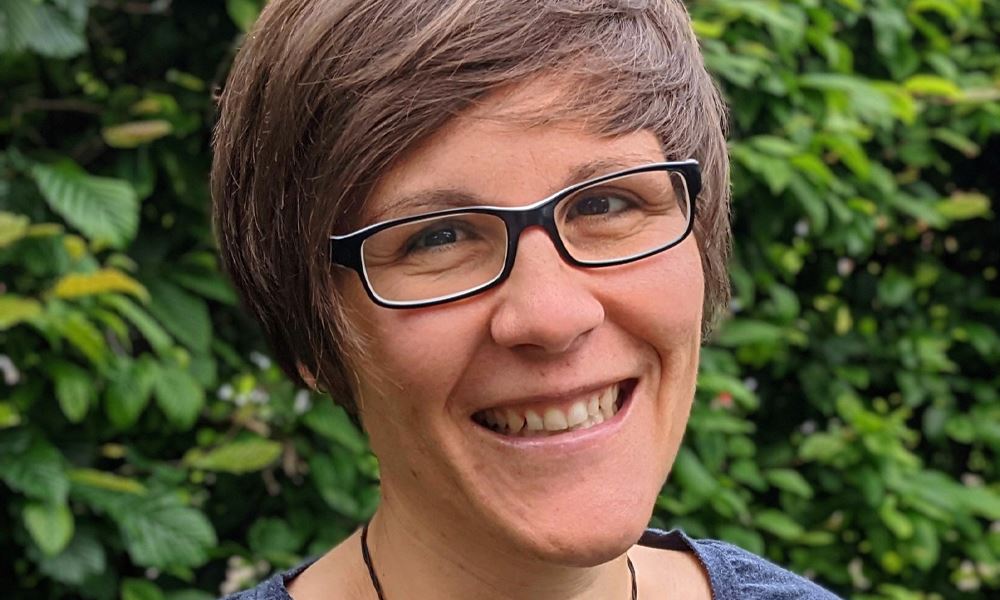
They just wanted me to be happy and were always supportive. Today I am happily married to my wife and we have two children. When I meet new people now, I don't bring up my sexual orientation right away, but when it comes up, I'm open.
When it comes to work, even when I was a student worker, I tried to be open about my sexual orientation. But I realized that being "out" wasn't equally easy at every company. In one of my first job interviews after graduation, I was asked a personal question and mentioned my boyfriend, even though I had a girlfriend. Looking back, I didn't feel comfortable enough and it really bothered me. That was when I decided to never pretend to be someone I'm not, and if a company doesn't accept me for who I am, then it's not the right company for me to work for.
It's a great feeling when you can be who you are right from the start and don't have to hide or pretend. When you work in a job for a long time, there will always be situations in which your private life plays a role. Personally, I'm very relaxed about the subject, and when private matters come up, I'm open and honest. Fortunately, I have never had any bad experiences with this. Of course, you can always run into people who are not so accepting, but fortunately that hasn't happened to me yet. It makes a lot of things easier if you can talk openly, for example when it comes to topics like marriage, parental leave or sick children. I can imagine that it can be very exhausting in the long run if you are forced to play a role in order not to reveal your real life.
When I started at Siemens Gamesa, then still Siemens AG, I came out in my job interview and it was never really an issue. Siemens Gamesa is a welcoming workplace for members of the LGBTI community as demonstrated by initiatives in recent months, such as the inclusive language guide, a new LGBTI employee resource group or the switch to the Pride logo in the company's social media channels. It is important that companies support the LGBTI community by setting specific policies to support LGBTI rights, actively communicating and raising awareness, providing networking opportunities, and holding events and workshops on diversity and LGBTI issues. We are making great progress at Siemens Gamesa, but there is always room for improvement. So, the work must continue.
When it comes to Pride, to me it means that I can be who I am without hiding from others or pretending to be someone else. It means a lot to me to be able to live in a country and culture where I can be open and proud. Despite all the progress that has been made in many countries around the world regarding LGBTI rights, there are still many where it is against the law to be a member of the LGBTI community. And even in those countries where there is no legal persecution, homosexuality can be perceived as something abnormal or unnatural. Therefore, we must not become complacent and continue to raise awareness of LGBTI issues, fight for respect, tolerance and acceptance so that we can lead the way for people for whom it is not possible to be out and proud or as easy to be out openly.”
When it comes to work, even when I was a student worker, I tried to be open about my sexual orientation. But I realized that being "out" wasn't equally easy at every company. In one of my first job interviews after graduation, I was asked a personal question and mentioned my boyfriend, even though I had a girlfriend. Looking back, I didn't feel comfortable enough and it really bothered me. That was when I decided to never pretend to be someone I'm not, and if a company doesn't accept me for who I am, then it's not the right company for me to work for.
It's a great feeling when you can be who you are right from the start and don't have to hide or pretend. When you work in a job for a long time, there will always be situations in which your private life plays a role. Personally, I'm very relaxed about the subject, and when private matters come up, I'm open and honest. Fortunately, I have never had any bad experiences with this. Of course, you can always run into people who are not so accepting, but fortunately that hasn't happened to me yet. It makes a lot of things easier if you can talk openly, for example when it comes to topics like marriage, parental leave or sick children. I can imagine that it can be very exhausting in the long run if you are forced to play a role in order not to reveal your real life.
When I started at Siemens Gamesa, then still Siemens AG, I came out in my job interview and it was never really an issue. Siemens Gamesa is a welcoming workplace for members of the LGBTI community as demonstrated by initiatives in recent months, such as the inclusive language guide, a new LGBTI employee resource group or the switch to the Pride logo in the company's social media channels. It is important that companies support the LGBTI community by setting specific policies to support LGBTI rights, actively communicating and raising awareness, providing networking opportunities, and holding events and workshops on diversity and LGBTI issues. We are making great progress at Siemens Gamesa, but there is always room for improvement. So, the work must continue.
When it comes to Pride, to me it means that I can be who I am without hiding from others or pretending to be someone else. It means a lot to me to be able to live in a country and culture where I can be open and proud. Despite all the progress that has been made in many countries around the world regarding LGBTI rights, there are still many where it is against the law to be a member of the LGBTI community. And even in those countries where there is no legal persecution, homosexuality can be perceived as something abnormal or unnatural. Therefore, we must not become complacent and continue to raise awareness of LGBTI issues, fight for respect, tolerance and acceptance so that we can lead the way for people for whom it is not possible to be out and proud or as easy to be out openly.”

